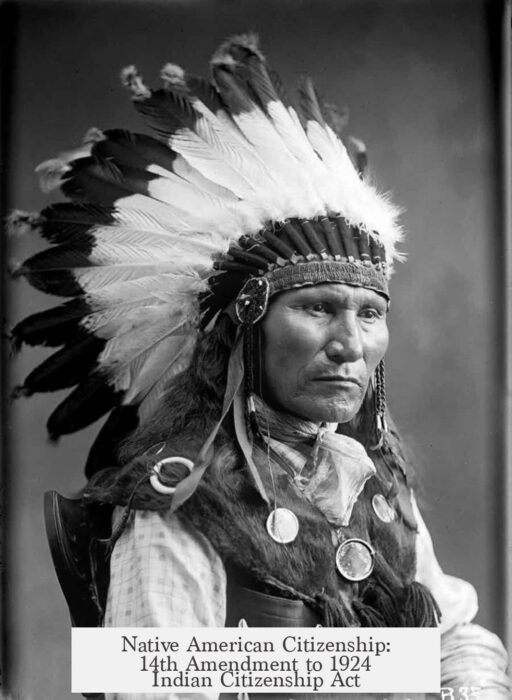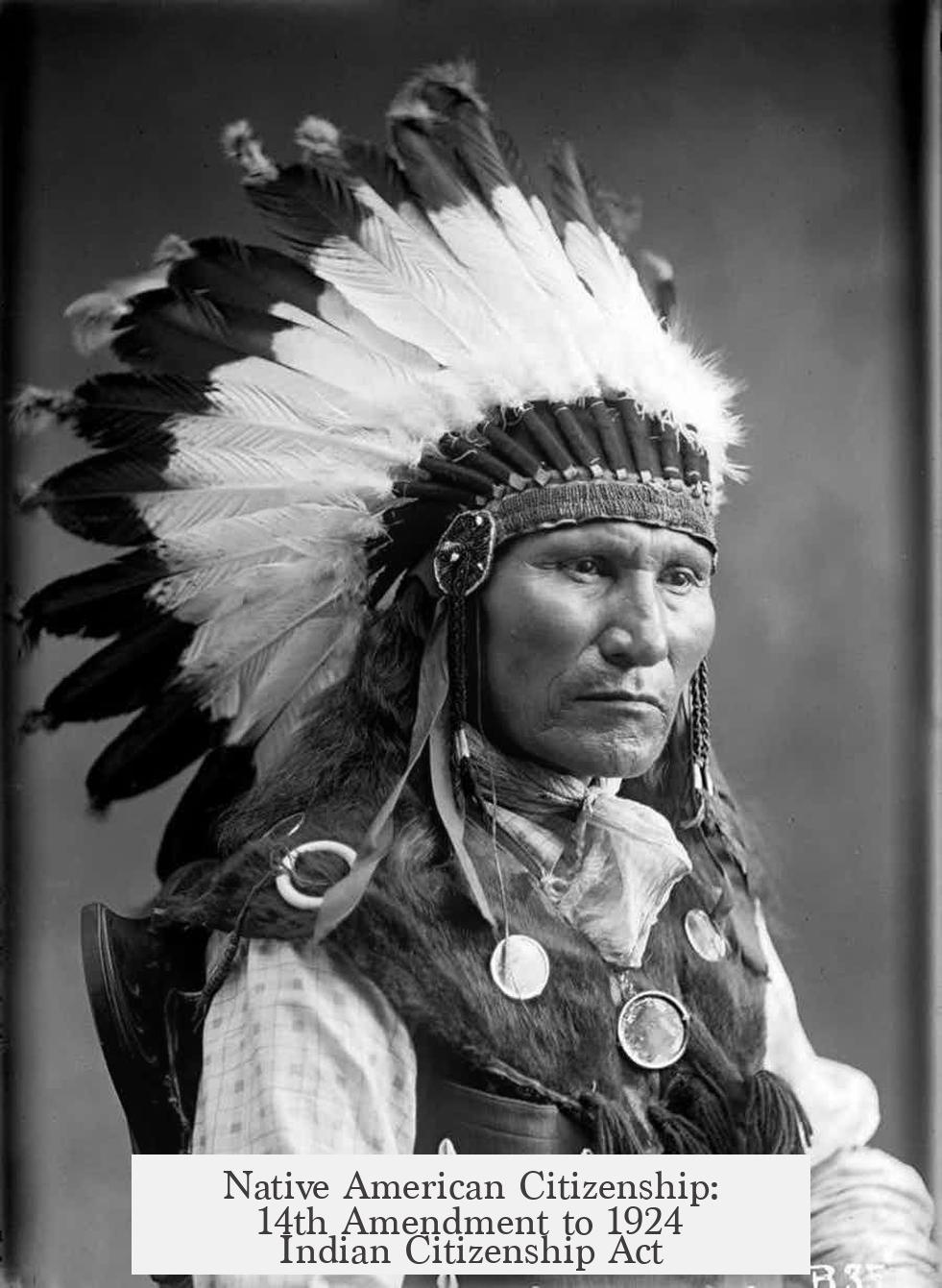Between the adoption of the 14th Amendment in 1868 and the passage of the Indian Citizenship Act of 1924, Native Americans were generally not considered U.S. citizens solely by birthright, and citizenship was possible only through specific federal laws, treaties, or assimilation policies.
The constitutional framework and legal status of Native Americans during this period were unique. Native American tribes were recognized as sovereign nations with governments predating the United States. This status placed them outside the full jurisdiction of the U.S. Constitution, including the 14th Amendment’s Citizenship Clause. The phrase “subject to the jurisdiction thereof” in the amendment was interpreted to exclude members of tribal nations, as they were not considered fully subject to U.S. laws but rather governed by their own tribal legal systems.
Federal courts reinforced this separateness. For example, in Elk v. Wilkins (1884), the Supreme Court ruled that an Indigenous person did not gain citizenship simply by leaving his tribe and living among white citizens. This landmark case established that membership in a tribal nation generally precluded automatic citizenship under the 14th Amendment. Similarly, in Talton v. Mayes (1896), the Court upheld tribal self-governance, ruling that constitutional protections did not extend to Native Americans within tribal jurisdiction. These rulings underscored the principle that tribal sovereignty coexisted with, but was distinct from, U.S. citizenship rights.
Several narrow pathways allowed Native Americans to gain citizenship prior to 1924:
- Federal Legislation: The Dawes Act of 1887 offered citizenship to Native Americans who accepted individual land allotments and thereby gave up some tribal affiliations.
- Treaty Provisions: Certain treaties conferred citizenship or rights resembling citizenship to tribe members.
- Residence in Indian Territory: The 1901 federal act granted citizenship to Native Americans residing in Indian Territory.
- Military Service: Following World War I, Congress allowed Native veterans who served honorably to apply for citizenship under specific provisions enacted in 1919.
- Assimilation and State Policies: Some states granted citizenship to Native Americans who assimilated, renounced tribal membership, or left reservations.
However, these routes were exceptions rather than the rule. Most Native Americans born on reservations or under tribal jurisdiction remained legally non-citizens of the U.S. They retained their status as members of sovereign tribal nations, not subject fully to the Constitution or U.S. citizenship rights. The Major Crimes Act of 1885 did expand federal jurisdiction over certain crimes in Indian Country, but it did not confer citizenship or alter tribal political status regarding citizenship.
The Indian Citizenship Act of 1924 (also known as the Snyder Act) marked the first time Congress universally granted U.S. citizenship to all non-citizen Native Americans born within the territorial limits of the United States. Unlike earlier piecemeal or conditional citizenship, it did not require renouncing tribal membership, allowing Native Americans to hold dual citizenship—both as U.S. citizens and as members of their tribes.
Although the 1924 Act granted citizenship, it did not guarantee voting rights. Many states continued to deny Native Americans the right to vote through discriminatory laws and policies, often citing state sovereignty or outdated statutes. Full political enfranchisement took decades more to achieve across the country.
| Aspect | Status Between 1868 and 1924 |
|---|---|
| Citizenship by Birth | Not automatic for Native Americans on reservations; excluded by 14th Amendment’s jurisdiction clause |
| Legal Sovereignty | Tribal governments recognized as sovereign, extra-constitutional entities |
| Pathways to Citizenship | Federal acts (Dawes Act, 1901 Act), treaty provisions, military service, assimilation |
| Major Court Decisions | Elk v. Wilkins denied birthright citizenship; Talton v. Mayes upheld tribal self-rule |
| Universal Citizenship | Granted by Indian Citizenship Act of 1924, allowing dual citizenship |
| Voting Rights | Not guaranteed by 1924 Act; state-level barriers persisted |
In summary, it was possible but uncommon and conditional for Native Americans to gain U.S. citizenship between the 14th Amendment and the Indian Citizenship Act of 1924. Most Native Americans were considered members of sovereign tribal nations, not U.S. citizens, unless they acquired citizenship through specific legal mechanisms such as treaties, federal laws, assimilation, or military service.
- Native Americans were generally excluded from automatic citizenship by the 14th Amendment’s jurisdiction clause.
- Tribal sovereignty kept Native Americans outside U.S. citizenship unless Congress or treaties provided otherwise.
- Pre-1924 citizenship was granted conditionally via allotment acts, military honor, treaties, or assimilation policies.
- The Indian Citizenship Act of 1924 granted blanket citizenship to all Native Americans born in the U.S. without tribal renunciation.
- Full voting rights lagged behind citizenship and were blocked by many state laws.




